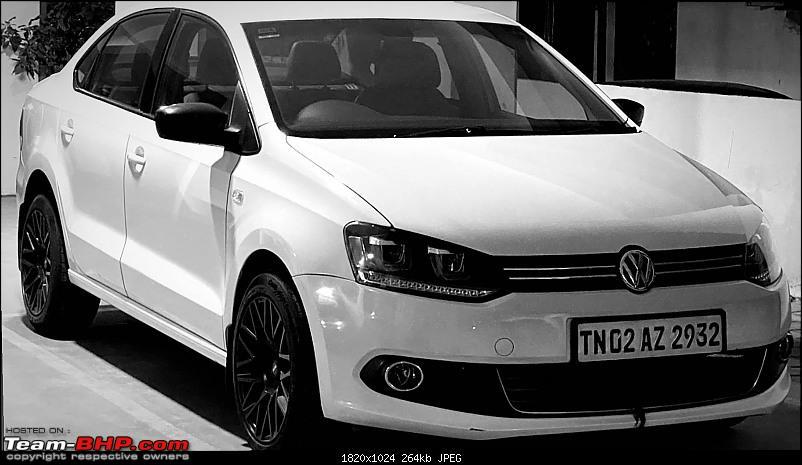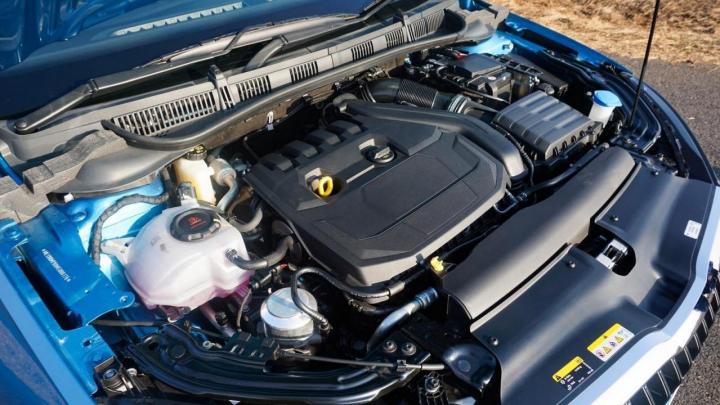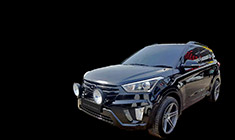News
Difference between the quality of Japanese and European engines
Drive the first-gen VW Vento (1.6L petrol) and the first-gen Honda City (1.5 VTec) today and you will understand what I'm talking about.
BHPian KrishnaMohan recently shared this with other enthusiasts.
Japanese vs European Horsepower
Hello, Team-BHP fraternity,
I'm Krishna Mohan & I would like to invite the views of fellow members over the difference in power/toque retention between Japanese engines (read Toyota, Honda, Mitsubishi, Suzuki, Yamaha, Kawasaki et all) and their European counterparts (read VW/Skoda, Fiat, KTM, Renault, Ford included).
I'm much more of a biker than a gearhead and would put forward the examples in the biking community first. Take for example a KTM RC 200 & a Yamaha R15. Both machines are built for performance & performance alone. Both sport best-in-class technologies in their segment, as in liquid-cooled, four-valve motors and 6-speed transmission.
Right out of the showroom, both machines are the fastest in their class. But as the years go by and the kilometres increase, it feels like the KTM has lost its edge somewhat. On the other hand, the Yamaha feels just as fast as it did on day 1. I know it has a lot to do with the maintenance and upkeep of the vehicle, but assuming that both machines have good upkeep, the Yamaha would still feel like the one which lost less power over the years.
The main ethos of Japanese brands for the most part is efficiency, reliability, longevity and smoothness. Even when they make a performance-oriented machine, it, sometimes, may not outrun its Euro counterpart, but it will definitely outlive it. Drive the first-gen VW Vento (1.6L petrol) and the first-gen Honda City (1.5 VTec) today and you will understand what I'm talking about.
I'm not talking about which machine is the fastest here, but the machine with minimal power loss over the years. I know that in both the examples I cited (Yamaha & Honda), the engines have Variable valve/Lift/Timing technologies. But still, the Japanese motor feels buttery smooth, silent, efficient and just as powerful even after a million kilometres on the ODO. Can a Euro motor do the same?
With the exception of a few very well-engineered motors, most can't. The basic rule of thumb for making more power from a motor is bumping up the compression ratio, introducing more valves, make the engine components harder & lighter. I feel the beauty of a Japanese motor is that even with the added complexity of more moving parts (VTec, slip & assist clutch, etc.), it still retains more power than its Euro rivals.
But is all of this a placebo since I couldn't provide any concrete evidence of the same or is there more than what meets the eye? These are my two cents on the matter. Forum members with driving experience of a variety of motors can shed more light on this.


Here's what BHPian saikishor had to say about the matter:
One basic, absolutely basic difference I can make out in a jap vs eu contest is that, japs require minimal maintenance when compared to their euro rivals. Japanese machines are over-engineered IMO (looking at you Honda Goldwing), and thus result in some good characteristics.
The thing with euro bikes/cars is, you have to look after and take care of them like your girlfriend. Pamper them with a lot of love and care. Preventive maintenance, detailing sessions, whatever comes to your mind in keeping the vehicle as good as new. Key takeaway IMO is PREVENTIVE MAINTENANCE. Get it serviced a couple of kms before the service interval, and no one else can keep you as happy as a euro machine.
Coming to Japs, because of the engineering prowess that they inherit, they last for a lifetime or even outlast their owner (Innova, Fortuner enter the chat). Jokes aside, these machines are built to last no matter how much load or abuse you throw at them. I mean look at the number of 1st & 2nd gen Activas, old Splendors, first gen Innovas, 3rd gen Citys etc are purring around town happily. These machines require minimal maintenance.
Another takeaway I have is, somehow I feel Jap machines have souls which euro machines clearly lack. I love my 390 Duke to the end of the moon and back but somehow I find it to lack a soul of its own. Ride a Japanese bike (something as tiny as an R15 or heck even an Activa) and you will understand what I'm trying to express.
Here's what BHPian amit_snk had to say about the matter:
Metallurgy, Japan has great prowess in this field, they can make the best piston rings that can last reaaalllly long. Very very simple explanation for this phenomenon. Many European companies used to send their performance machines/engines to Yamaha for final fine-tuning to extract absolute performance from their engines.
Anybody with a degree in metallurgy can put forward his/her views to put more light into this topic, most of us would love to learn more about it.
Here's what BHPian srini1785 replied:
I don't have a degree in Metallurgy but I think you are right. Basic dimensional/design parameters of IC Engines can be found in the design data book but what the book won't tell you is which metal or alloys to use.
Practically everything in Automotive engineering is dictated by material science. Them Japs know a thing or two about material science since the days of making the finest Katana.
Check out BHPian comments for more insights and information.
- Tags:
- Indian
- Member Content
- Japanese
- Engines









.jpg)








